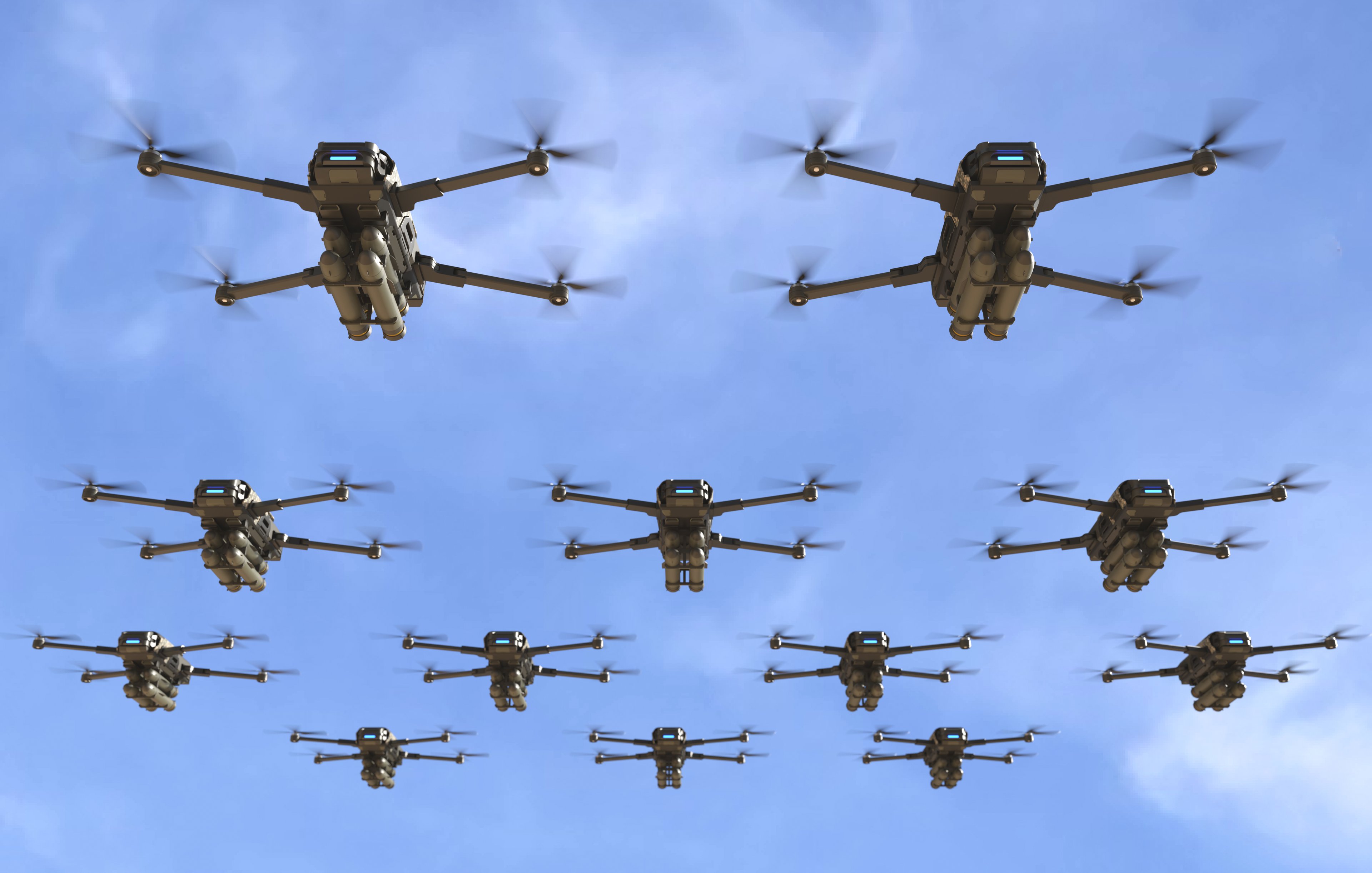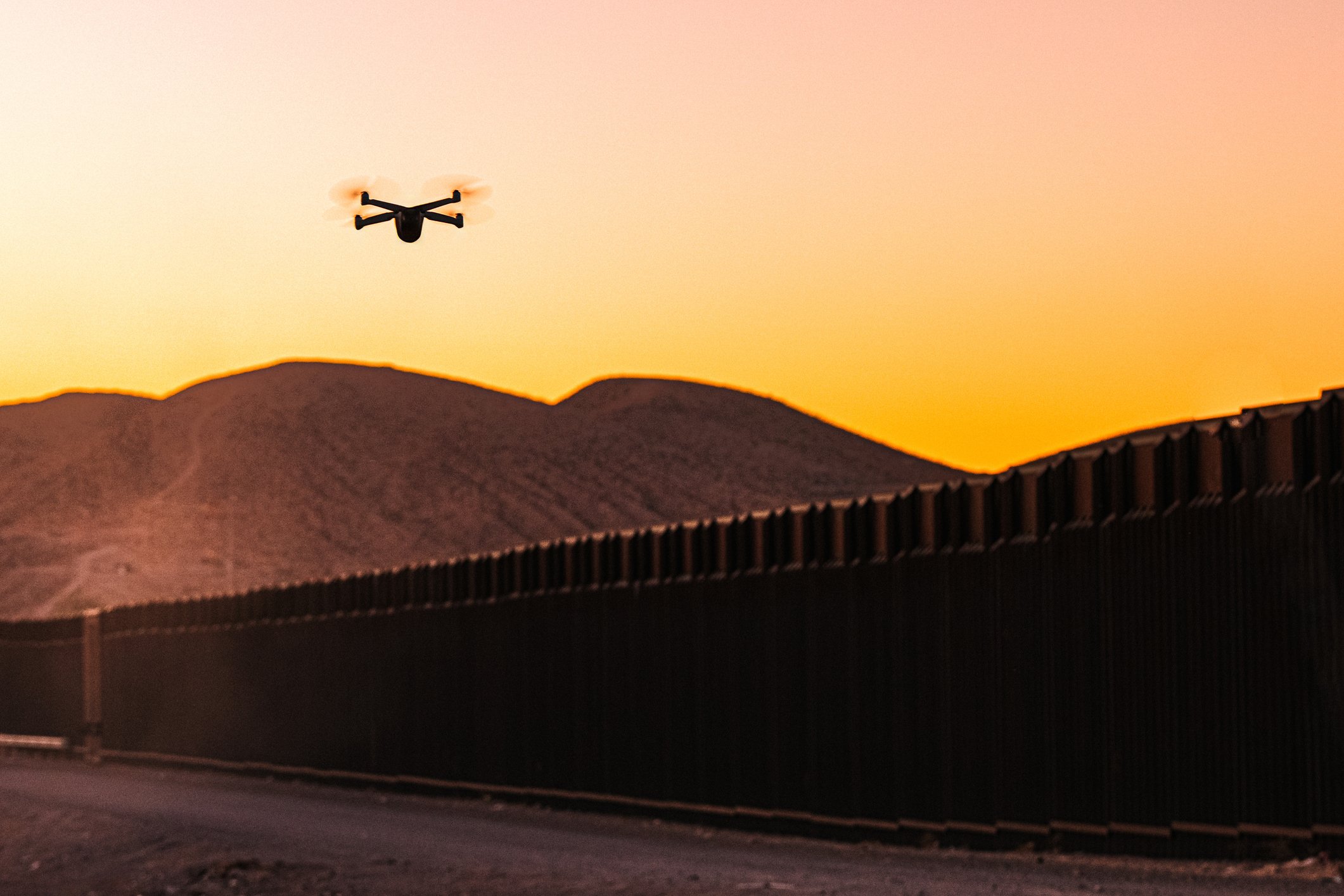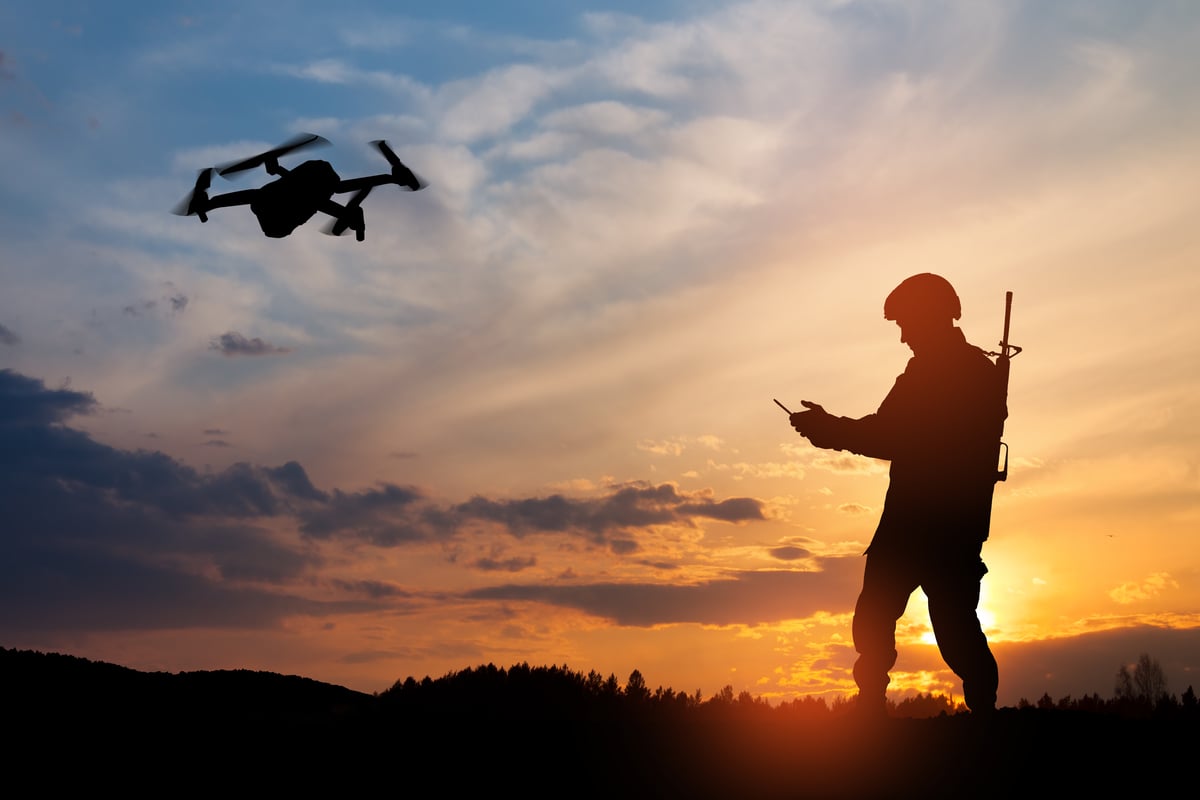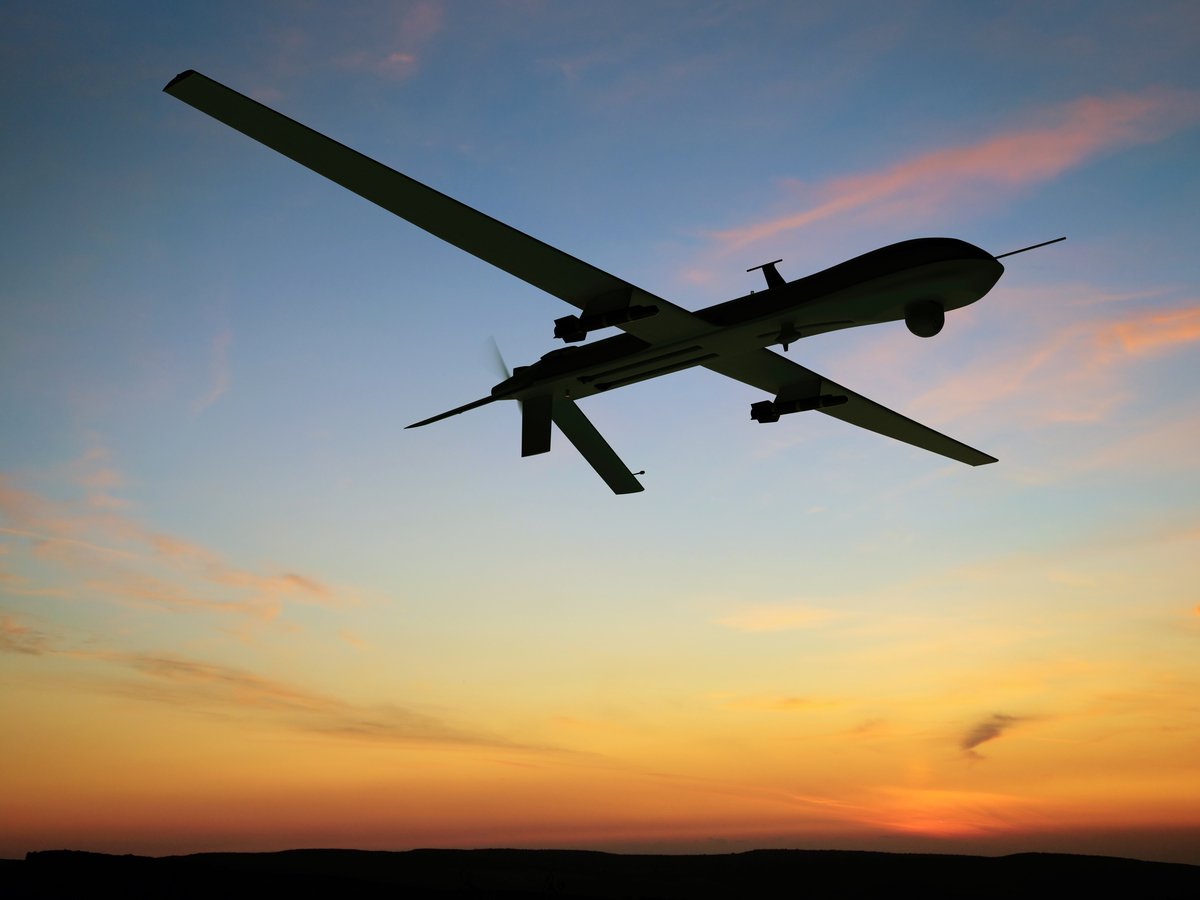The Air Force is thinking about buying more than two dozen high-tech drones from Kratos Defense & Security Solutions (KTOS 1.43%), a potential final step toward a major order that's key to the bull case for this mid-tier defense tech company.
Will Roper, the Air Force's assistant secretary for acquisition, told reporters gathered at the Paris Air Show that the service is thinking of buying 20 to 30 of Kratos' advanced XQ-58A Valkyrie drones to ramp up testing and experimentation with the platform. The comments come just three months after the Valkyrie completed a successful first test flight with the Air Force Research Laboratory, and they mark the most concrete comments yet from a military official about the Pentagon's interest in the platform.
A full-fledged order of 100 or more drones is still probably a year off and is far from certain, but the progress is validation of Kratos' pursuit of unmanned programs. The company, which in recent years has been stung by missed earnings and a critical report from a short-seller, appears to finally be progressing toward its destination.
A wingman in the sky
The Air Force already operates a number of drone platforms designed primarily to provide surveillance or for missile launches, but the Valkyrie marks the beginning of a new, more sophisticated generation of unmanned planes. The company envisions swarms of Valkyrie drones flying into battle along side crewed aircraft, including the Lockheed Martin-made F-35, to provide added firepower and to overwhelm and confuse enemy radar systems.

The Kratos XQ-58A Valkyrie during its second test flight. Image source: Air Force Photo by 2nd Lt. Randolph Abaya, 586 Flight Test Squadron.
An unmanned platform could be deployed to penetrate contested airspace, keeping piloted aircraft out of danger, and to help the Air Force generate more firepower at a relatively small cost. Kratos has estimated the Valkyrie will sell for less than $3 million apiece in a production run of at least 100 planes, compared with the $80 million-plus cost for a single F-35.
Roper told reporters he believes the mission for these drones could expand over time, with new sensors and weapons added. The Air Force is also working toward greater autonomy, with hopes that artificial intelligence will eventually allow the drones to learn and adapt in combat situations and respond to threats without command prompts.
The importance of finishing first
Roper's comments come just days after Kratos said the Valkyrie had completed a second successful test, accomplishing all its objectives in a 71-minute flight. The drone is in the middle of a five-flight test sequence to evaluate its functionality, performance, and capabilities.
Steve Fendley, head of Kratos' unmanned operations, in a statement said that "with this most recent milestone, the readiness of the XQ-58A is accelerating and increasing the near-term application opportunities for the system."
The Air Force has made these so-called "loyal wingman" drones a priority, and while Kratos is out in front, it faces competition from larger contractors, including Boeing (BA +0.47%). Kratos insists the Valkyrie is differentiated from the drone Boeing unveiled earlier this year in Australia, in part because the Valkyrie can launch without a runway, but the company's best strategy is to remain as far out in front as possible. The Boeing drone isn't expected to make its first flight until 2020.
For Kratos, getting a full production order for the Valkyrie would be a huge accomplishment. It could also be just the tip of the iceberg for the company. The plane is the first of up to 10 tactical drone programs Kratos has in the works to address various uses and missions, some classified.
Although it's unlikely they will all work as planned and end up as revenue producers, the company should be able to take what it's learned on the Valkyrie and apply it to these other programs, helping the company move the winners to market more quickly.
The battle is nearly won
Kratos, a onetime wireless-infrastructure vendor that pivoted to become a government contractor over the past decade, has had a choppy run over the past 10 years. But as the Valkyrie has evolved from a promising idea to a potential Air Force priority, investors have taken notice.
Shares of Kratos are up about 90% over the past year and more than 400% over the past three years. They're also expensive relative to their defense rivals, trading at 3.7 times sales, compared with Boeing's 2.1 multiple and Lockheed Martin's 1.8.
With every passing month, it seems more likely Kratos will be able to cash in on its promise and justify its inflated multiple, and current holders should feel good owning the stock.
There still is the potential for added upside, assuming the Valkyrie and other drone programs remain on course. But it's hard to image the company's shares will enjoy another three-year period similar to their 400% gain since mid-2016. Kratos today is much less of a speculative stock than it used to be.








